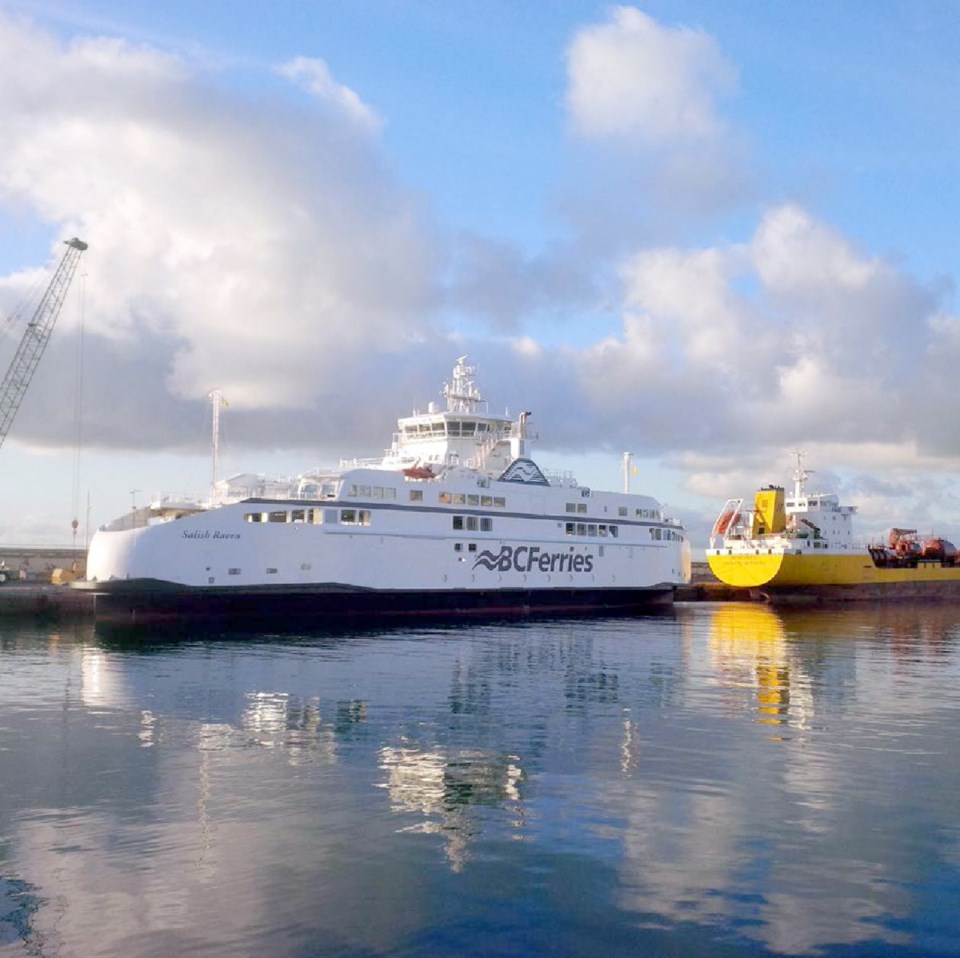The Salish Raven, the third of three Salish-class vessels built in Poland for B.C. Ferries, is on its way across the Atlantic Ocean following a stop off Spain in the Canary Islands.
After taking on fuel and provisions there, the Salish Raven is about two weeks from Panama, depending on weather, where it will transit the Panama Canal and head up the coast of North America to its new home in B.C.
The Salish Raven left Gdansk, Poland, April 28 for a journey of 10,440 nautical miles, which is expected to take 45 to 55 days.
Already delivered are the Salish Orca and the Salish Eagle, with the Salish Orca set to begin sailing on the Powell River-Comox run.
“She’s up in the area right now,” said B.C. Ferries spokeswoman Deborah Marshall. “We’re just finishing off our training.”
The Salish Eagle is expected to start work in the southern Gulf Islands in the third week of June, with Tsawwassen as its base.
The Salish Raven will also serve the southern Gulf Islands beginning in the fall.
As with the other sailings to deliver the Salish-class ferries, some B.C. Ferries workers are on the Salish Raven for training purposes.
“They’re there to learn the systems,” Marshall said.
All three new vessels are 107 metres long, can hold 145 vehicles and 600 passengers, and were built at an overall cost of $200 million. They can run on diesel fuel or natural gas, but the company is planning to use natural gas.
“It’s better for the environment and it’s cheaper to purchase,” Marshall said.
The Salish Raven’s journey to B.C. is being fuelled by both natural gas and diesel, she said.
All three vessels are being adorned with First Nations art. The design for the Salish Raven was created by the Musqueam Nation’s Thomas Cannell and will be applied when the ship arrives.
The Queen of Burnaby and the Queen of Nanaimo are being retired as a result of the additions to the fleet.
A third ferry, the Bowen Queen, will move from regular service to a role as a utility vessel.



